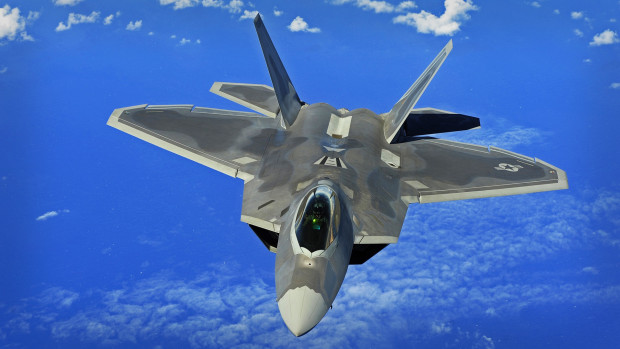
Lockheed Martin (LMT) -) posted better-than-expected second quarter earnings Tuesday, while lifting its full-year profit forecast, as the aerospace and defense contractor compiled a record order backlog of $158 billion.
Lockheed Martin said earnings for the three months ending in March came in at $6.63 per share, up 5% from the same period last year and firmly ahead of the Street consensus forecast of $6.45 per share.
Group revenues, Lockheed Martin said, rose 8% to $16.7 billion, again ahead of analysts' estimates of a $15.5 billion tally.
The group also nudged its 2023 sales forecast to between $66.25 billion and $66.75 billion, with diluted earnings in the region of $27.00 to $27.20 per share.
"Given the strength of our year-to-date results and ongoing demand for our signature programs and advanced technologies, we are raising our full year sales and earnings per share outlooks for 2023," said CEO Jim Taiclet. "We are confident in our return to growth and ability to reward our shareholders over the long run with reliable free cash flow per share expansion and cash deployment."
"Along the way, we will continue developing and investing in our 21st Century Security vision to strengthen the resilience and responsiveness of the U.S. defense production system, elevate deterrence through the acceleration of digital technologies into critical missions with our commercial industry partners, and deepen our industrial relationships with allies and partner nations for production and sustainment operations," he added.
Lockheed Martin shares were marked 1.24% higher in early Tuesday trading immediately following the earnings release to change hands at $475.66 each.
Management commentary on the delivery of F-35 fighter jets to the U.S. Defense Department will also be in focus following a Monday report from Bloomberg that suggested the Pentagon could hold back more than $400 million in payments from an existing contract until it fixes a long-running software glitch.
The dispute could affect Lockheed's bid for the U.S. Air Force's $2.3 billion Next Generation Air Dominance program, which begins next year and aims to replace the current F-22 Raptor fighter jet,







